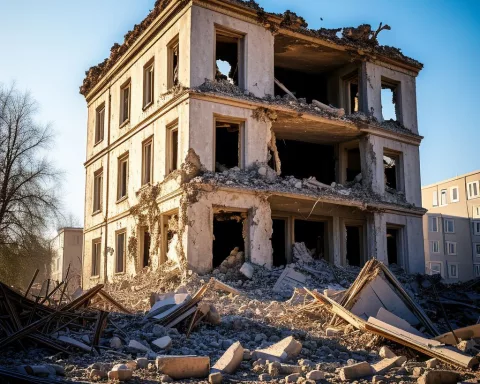The Cape Town City Council faced a tumultuous disruption as the Good Party and the Economic Freedom Fighters (EFF) joined forces to demand accountability from MMC for Safety and Security, JP Smith, for his role in the recent taxi stayaway. This protest action resulted in several fatalities, extensive destruction of property, and numerous injuries, including a British doctor.
EFF Disrupts City Council Sitting
The EFF disrupted the city council sitting, accusing Smith of having blood on his hands and calling on him to account for the violent and destructive behavior associated with the taxi stayaway. Councillor Suzette Little of the Good Party opposed the disruptive behavior, stressing that creating chaos in the chamber would not bring about the desired accountability.
ANC Weighs In
ANC’s Banele Majingo compared the taxi industry’s treatment to that of the Apartheid government’s treatment of those fighting for their rights. He claimed that the Democratic Alliance (DA) had no regard for the taxi industry, instead prioritizing the subsidized bus industry, which includes Golden Arrow and MyCiTi.
EFF Councillors Display Protest Banners
During the city council meeting, EFF councillors displayed banners conveying messages related to the recent taxi strike. The banners contained statements such as “JP Smith has blood on his hands” and “JP Smith is killing the black economy.”
Mayor Addresses Protest
Mayor Geordin Hill-Lewis expressed acceptance of silent protests but hinted that certain statements might warrant consideration. As he spoke, EFF councillors advanced towards the stage and encircled the podium. The Speaker then adjourned the meeting temporarily to have the protesting councillors removed from the chamber.
Chaos and Tensions on the Rise
The brief recess extended for over an hour, highlighting the growing tensions within Cape Town’s political landscape. As various factions seek accountability and fair treatment for their constituents, open dialogue is crucial for addressing grievances and finding common ground.
Continuing Debate on Public Transportation
In the wake of these events, Cape Town’s citizens and political representatives will likely continue to debate the city’s approach to public transportation, policing operations, and the prioritization of different industries. Demanding accountability amidst chaos, the Cape Town City Council disruption serves as a call for responsible leadership in the face of growing tensions.












